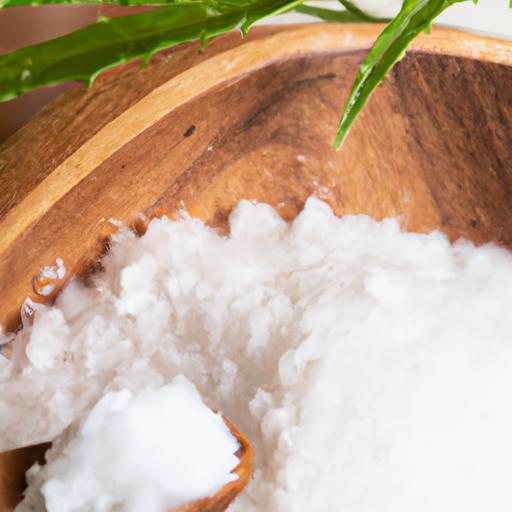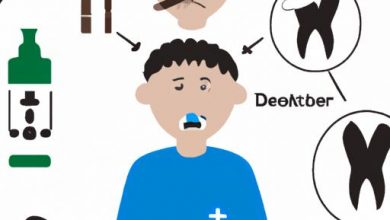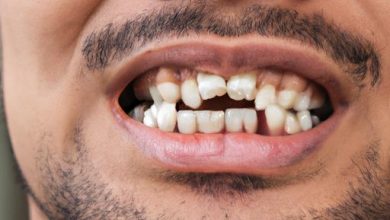How Salt Can Keep Dental Problems Away in Tamil
Introduction

Dental problems are a widespread issue that affects people of all ages. Poor oral hygiene can lead to tooth decay, gum disease, and a host of other dental issues that can be painful and expensive to treat. Fortunately, there is a simple and inexpensive solution that can help keep dental problems at bay – salt.
In this article, we’ll explore the various ways salt can be used to promote good oral health, particularly in the context of Tamil culture. We’ll cover the benefits of salt as a natural mouthwash, a toothpaste ingredient, a gum massage agent, and a dental floss alternative. By the end of this article, you’ll have a better understanding of how salt can be incorporated into your daily oral hygiene routine to keep your teeth and gums healthy and strong.
Salt as a Natural Mouthwash
One of the most effective ways to use salt for oral health is as a natural mouthwash. Salt has natural antibacterial properties that can help kill harmful bacteria in the mouth that cause bad breath, tooth decay, and gum disease. In fact, salt has been used as a natural remedy for oral health issues for centuries.
To make a salt mouthwash, simply dissolve a teaspoon of salt in a glass of warm water and swish the solution around in your mouth for 30 seconds to a minute. Be sure to spit the solution out and rinse your mouth with clean water afterward. Repeat this process twice a day, preferably after brushing your teeth, for best results.
Using salt as a mouthwash can also help relieve sore throats and canker sores, making it a versatile and cost-effective solution for a range of oral health issues. However, it’s important to note that salt mouthwash should not be used as a replacement for regular brushing and flossing, but rather as a complementary addition to your oral hygiene routine.
Salt as a Toothpaste Ingredient
Another way to incorporate salt into your oral hygiene routine is by using it as an ingredient in your toothpaste. Salt has natural abrasive properties that can help remove surface stains on your teeth and promote healthy enamel. It can also help neutralize acids in the mouth that cause tooth decay and bad breath.
Benefits of using salt toothpaste include fresher breath, whiter teeth, and healthier gums. To make homemade salt toothpaste, mix equal parts of salt and baking soda in a small bowl and add a few drops of peppermint essential oil for flavor. Use this mixture to brush your teeth twice a day, preferably after meals. Be sure to rinse your mouth with water afterward to remove any residual salt.
When using salt toothpaste, it’s important to use gentle, circular motions to prevent damage to your teeth and gums. Overusing salt toothpaste or brushing too hard can lead to enamel erosion and gum recession, which can cause sensitivity and other dental problems. As with any toothpaste, be sure to read the label and follow the instructions carefully.
Salt as a Gum Massage Agent
Gum health is a crucial part of oral hygiene, as healthy gums provide a strong foundation for healthy teeth. Gum disease can lead to tooth loss, bone loss, and a host of other dental issues that can be painful and expensive to treat. Fortunately, salt can be used to promote healthy gums through gum massages.
To do a salt gum massage, dissolve a teaspoon of salt in a cup of warm water and dip your index finger into the solution. Gently massage your gums with your salt-soaked finger for 2-3 minutes, using circular motions and applying gentle pressure. Be sure to spit the solution out and rinse your mouth with clean water afterward.
Salt gum massages help increase blood flow to the gums, which can promote healing and reduce inflammation. They can also help remove food particles and bacteria from the gum line, reducing the risk of gum disease. However, it’s important to note that gum massages should be done in addition to regular brushing and flossing, not as a replacement. If you experience any pain or discomfort during a gum massage, stop immediately and consult your dentist.
Conclusion
In conclusion, salt is a versatile and cost-effective solution for a range of oral health issues, and can be particularly useful in Tamil culture. Using salt as a natural mouthwash, a toothpaste ingredient, a gum massage agent, and a dental floss alternative can help promote healthy teeth and gums and prevent dental problems. However, it’s important to note that salt should be used in moderation and should not be used as a replacement for regular brushing and flossing. By incorporating salt into your daily oral hygiene routine, you can keep your teeth and gums healthy and strong, and avoid costly and painful dental issues. At Zahnweiss Info, we’re committed to promoting good oral health and providing expert advice on dental care.
Salt as a Dental Floss Alternative
While traditional dental floss is an effective way to remove food particles and plaque from between teeth, some people find it difficult or uncomfortable to use. Luckily, salt can be used as an alternative to flossing for interdental cleaning.
To use salt for interdental cleaning, wet your finger and dip it into a small dish of salt. Gently rub the salt along the gum line and between your teeth, using a back-and-forth motion. This will help remove food particles and plaque, and will also stimulate blood flow to the gums, promoting healthy gum tissue.
Salt can also be used in combination with a water flosser for a more thorough interdental clean. Simply add a teaspoon of salt to the water reservoir of your water flosser and use as directed. This will help enhance the antibacterial properties of the water and provide a deeper clean for your teeth and gums.
Conclusion
In conclusion, salt is a versatile and cost-effective solution for promoting good oral health. From its antibacterial properties as a natural mouthwash to its use as a toothpaste ingredient, gum massage agent, and dental floss alternative, salt can help keep dental problems at bay.
However, it’s important to remember that salt should be used as a complementary addition to regular brushing and flossing, not as a replacement. It’s also crucial to maintain regular dental checkups with a trusted dentist to ensure any dental issues are caught early and treated promptly.
By incorporating salt into your daily oral hygiene routine and practicing good oral hygiene habits, you can keep your teeth and gums healthy and strong for years to come. At Zahnweiss Info, we’re committed to providing the latest updates on dental health news, treatments, and therapies, as well as expert advice to help you live your healthiest life.




